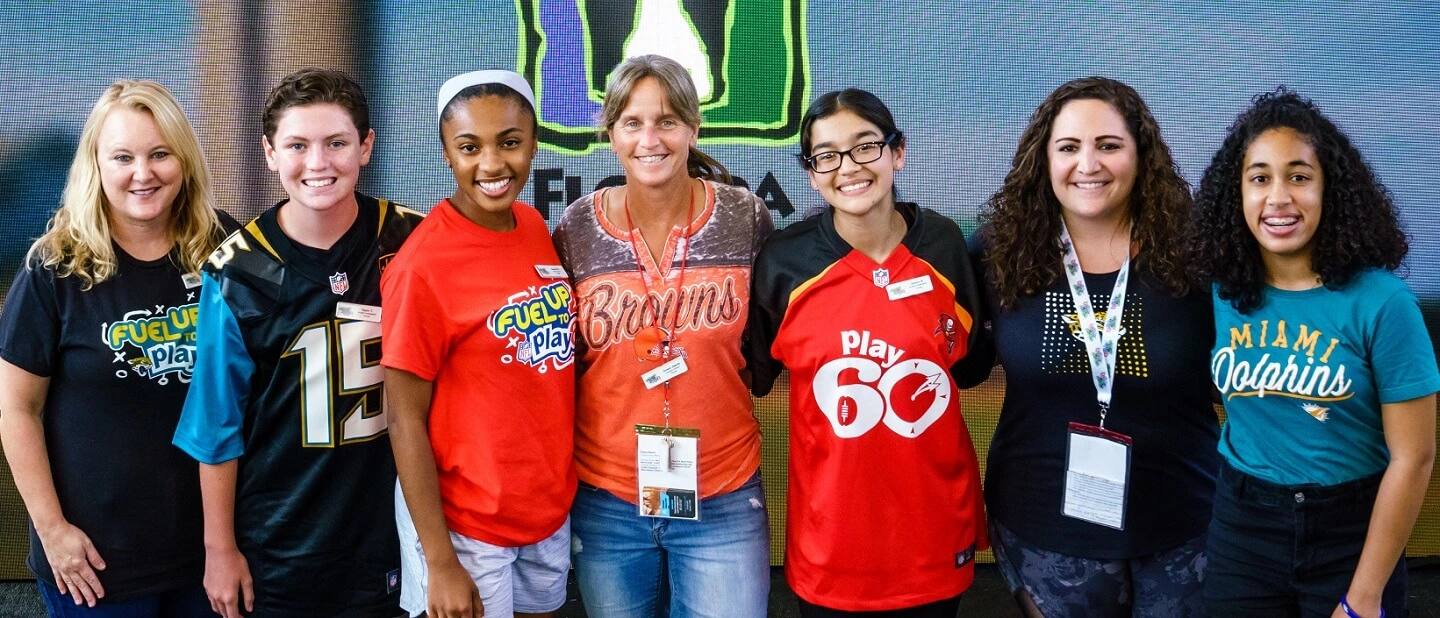Florida Teen Innovates for Food Insecure Classmates
Taylor Thigpen is fueled by the sight of a hungry classmate.
The 14-year-old student from Florida said about 40% of his classmates receive free or reduced meals and some schools in his county are at 100%.
“It’s so hard to think about students going hungry,” he said. “When I look at school meals, that’s all some students depend on for the entire day.”
So, Taylor relied on skills he learned through the Fuel Up to Play 60 program — and a relentless inner drive — to take action. Just talking about making change is meaningless to him.
“I hate to just talk about something,” he says. “If I’m going to talk about it, I’m going to do it.”
Above: Taylor, second from left, motivated his school and community to ensure food that would have gone to waste went to food-insecure students. He also raised $40,000 in hunger relief funds thanks to skills he developed at a Fuel Up to Play 60 Student Ambassador Summit. Fuel Up to Play 60 is a dairy farmer-funded in-school nutrition and physical activity program. Top, right: Taylor and Cooper Chapman appeared in a local Florida television program called "The Outsiders Club."
He began by creating “share tables” in his school cafeteria. The concept is for students who don’t eat packaged parts of their meals, such as fruit or milk, to drop them off at a table for others to take home. Not only is food going to students in need, the amount of food waste has been drastically reduced.
Thigpen also led the charge to grow a garden on campus where students can select fresh vegetables to take home. He also installed a compost bin where cafeteria waste becomes a valuable soil enhancement for the garden.
The share table model has been so successful that Thigpen contacted his superintendent’s office and this program has now been implemented in more than 40 schools.
But that’s not enough. Thigpen wants to see share tables in schools across the entire state. There is no shortage of politicians and leaders he has reached out to, including state senators and even the governor, to talk about this endeavor and other ideas to help food-insecure people.
“I make lots of phone calls and send millions of emails,” he says.
When the COVID-19 crisis brought the country to a standstill, Thigpen saw it as an opportunity to help people in need. He got involved in writing grants – a skill he said he learned during a Fuel Up to Play 60 Student Ambassador Summit – and went to work finding money to help food-insecure people in his community.
He generated $40,000 that provided food boxes to more than 6,500 county families these past few months. The boxes included fruits, vegetables, meat, eggs and, of course, milk.
“I’m all about the dairy!” he says.
Taylor’s efforts reflect the roll-up-your-sleeves attitude seen throughout many communities, including the dairy community. America’s dairy farm families developed resources that assist schools across the country, including programs like Fuel Up to Play 60, which dairy farmers created with the NFL, to grow healthier school communities. And during the COVID-19 crisis, dairy farmer partner organizations like Feeding America and GENYOUth are building on that work with the For School’s Sake program to help feed children who depend on school meals.
He also found time during the pandemic for yet another passion: horticulture. Thigpen has always had a green thumb and is a 4-H member who enjoys competing in fairs. He obtained small business and nursery licenses to create his “Succulent King” company. The business is taking off and he ships succulents and cacti to customers in all 50 states. Some of the proceeds benefit his hunger efforts.
Thigpen admits he has created a demanding schedule and he mostly works on his own. But his drive remains at full speed, driven by a goal of helping others because he can.
“I’ve seen kids go hungry and I’ve had kids come up to me and say, ‘You helped me eat tonight.’ When someone says that, it’s what keeps me going,” he said. “If I decided to have fun instead of working every second of my life, that student may not have eaten that day. Or when COVID-19 happened, those 6,550 families may not have had anything.
“It’s hard but it’s what I like to do, and I won’t quit.”
















